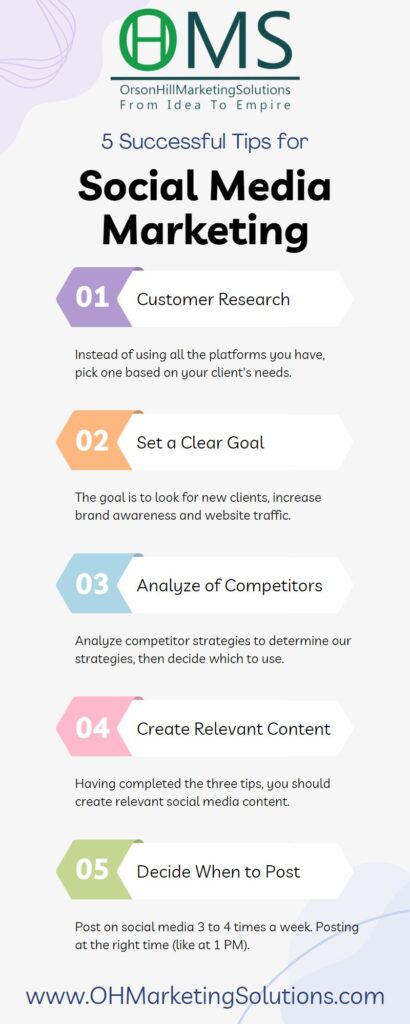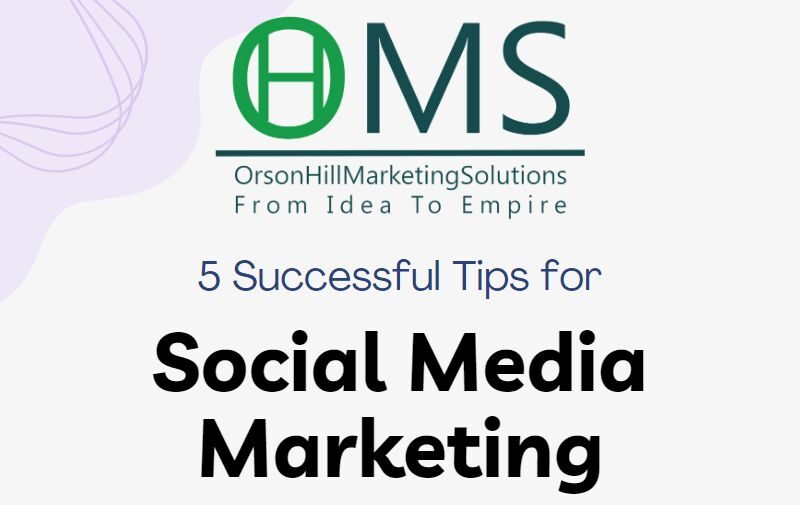Branding is an important part of any business, but it is especially important for new companies. It can be difficult to stand out in a crowded marketplace, but successful branding strategies can help. In this blog, I will share some of the key strategies for successful branding, and how you can use them to make sure your new company is noticed!
What is Branding and Brand Strategy?
Branding is the process of creating an emotional connection between a company and its customers. A brand is more than just a logo, a tagline, or a product name; it is the promise of what a company stands for. It is the way a company communicates with its customers, builds relationships, and ultimately, grows.
Brand strategy is the process of creating and implementing a plan to build a successful brand. It involves defining the company’s values, setting goals, and developing strategies to reach those goals. It also involves understanding the target audience and the competition and leveraging social media and other channels to communicate with customers.
Benefits of Strategic Branding
There are many benefits to developing a strategic branding plan for your new company. A strong brand identity can help you stand out in the marketplace and build customer loyalty. It can also help you attract more customers and increase your sales. Additionally, a strong branding strategy can help you build a positive reputation and trust with your customers, which can lead to increased customer satisfaction.
Steps for Developing a Brand Strategy
Developing a brand strategy can seem like a daunting task, but it doesn’t have to be. Here are some steps you can take to ensure a successful branding strategy for your new company:
- Understand Your Target Audience: First, you need to understand who your target audience is. This includes understanding their needs and wants, as well as their values and beliefs.
- Develop Your Brand Values: Once you understand your target audience, you need to develop your brand values. These should reflect the values of your target audience, and be the foundation of your brand.
- Craft a Unique Brand Identity: Your brand identity should reflect your brand values, and be something that sets you apart from your competitors. This includes your logo, tagline, and overall design.
- Set Goals: Setting goals is an essential part of any business strategy. Your goals should be specific, measurable, achievable, and relevant.
- Create a Brand Plan: Once you’ve set your goals, you need to create a plan to reach them. This should include a timeline, budget, and strategies for reaching your goals.
The Importance of Brand Positioning
Brand positioning is the process of positioning your brand in the minds of your target audience. It is the process of identifying your unique selling point, and communicating it to your target audience in a way that resonates with them. This can help you stand out in the marketplace and build a strong brand identity.
Creating a Brand Plan and Setting Goals
Once you’ve identified your target audience and developed your brand values, you need to create a brand plan and set goals. Your brand plan should include a timeline, budget, and strategies for reaching your goals. Additionally, your goals should be SMART (specific, measurable, achievable, relevant, and time-bound).
Crafting a Unique Brand Identity
Your brand identity should reflect your brand values, and be something that sets you apart from your competitors. This includes your logo, tagline, and overall design. A well-crafted brand identity can help you create an emotional connection with your customers and build loyalty.
The Advantages of Branding for a New Company
Branding can have many advantages for a new company. It can help you stand out in the marketplace and build a strong identity. It can also help you attract more customers and increase sales. Additionally, a well-crafted brand can help you build customer loyalty and trust, and establish a positive reputation.
Brand Storytelling and Its Role in Branding
Brand storytelling is an important part of any successful branding strategy. It is the process of crafting a narrative that reflects your brand values and connects with your target audience. This can help you create an emotional connection with your customers and build loyalty.
Leveraging Social Media for Branding
Social media is an important tool for any business, and it can be especially useful for new companies. It can help you reach a wider audience, build relationships, and increase brand awareness. Additionally, it can help you build customer loyalty and trust, and foster a sense of community.
Effective Strategies for Branding Your New Company
There are many effective strategies for branding your new company. Here are some strategies you can use to make sure your new company is noticed:
- Develop a Unique Brand Identity: As mentioned earlier, your brand identity should be something that sets you apart from your competitors. This includes your logo, tagline, and overall design.
- Leverage Social Media: Social media can be a great tool for reaching a wider audience and increasing brand awareness. Additionally, it can help you build relationships and foster a sense of community.
- Focus on Storytelling: Storytelling is an important part of any successful branding strategy. It can help you create an emotional connection with your customers and build loyalty.
- Analyze Your Competition: Understanding your competition is an important part of any successful branding strategy. You should analyze their strategies and identify ways to differentiate yourself.
- Monitor Your Progress: Once you’ve implemented your branding strategy, you should monitor your progress and make adjustments as necessary. This will help you ensure that your branding strategy is effective.
What is Brand Strategy?
Brand strategy is the process of creating and implementing a plan to build a successful brand. It involves defining the company’s values, setting goals, and developing strategies to reach those goals. Additionally, it involves understanding the target audience and the competition, and leveraging social media and other channels to communicate with customers.
Components of a Branding Strategy
A successful branding strategy consists of several components, including:
- Understanding Your Target Audience: It is important to understand who your target audience is and what their needs and wants are.
- Developing Your Brand Values: Your brand values should reflect the values of your target audience and be the foundation of your brand.
- Crafting a Unique Brand Identity: Your brand identity should be something that sets you apart from your competitors. This includes your logo, tagline, and overall design.
- Setting Goals: Setting SMART goals is an important part of any business strategy.
- Creating a Brand Plan: Once you’ve set your goals, you need to create a plan to reach them. This should include a timeline, budget, and strategies for reaching your goals.
- Leveraging Social Media: Social media can be a great tool for reaching a wider audience and increasing brand awareness.
Benefits of Branding Strategies
Branding strategies can have many benefits for a new company. A successful branding strategy can help you stand out in the marketplace and build customer loyalty. It can also help you attract more customers and increase your sales. Additionally, a strong branding strategy can help you build a positive reputation and trust with your customers, which can lead to increased customer satisfaction.
Brand Strategy Development
Developing a brand strategy can seem like a daunting task, but it doesn’t have to be. Here are some steps you can take to ensure a successful branding strategy for your new company:
- Understand Your Target Audience: First, you need to understand who your target audience is. This includes understanding their needs and wants, as well as their values and beliefs.
- Develop Your Brand Values: Once you understand your target audience, you need to develop your brand values. These should reflect the values of your target audience, and be the foundation of your brand.
- Craft a Unique Brand Identity: Your brand identity should reflect your brand values, and be something that sets you apart from your competitors. This includes your logo, tagline, and overall design.
- Set Goals: Setting goals is an essential part of any business strategy. Your goals should be SMART (specific, measurable, achievable, relevant, and time-bound).
- Create a Brand Plan: Once you’ve set your goals, you need to create a plan to reach them. This should include a timeline, budget, and strategies for reaching your goals.
Strategies for Branding
Once you’ve developed your brand strategy, you need to implement it. Here are some effective strategies for branding your new company:
- Leverage Social Media: Social media can be a great tool for reaching a wider audience and increasing brand awareness. Additionally, it can help you build relationships and foster a sense of community.
- Focus on Storytelling: Storytelling is an important part of any successful branding strategy. It can help you create an emotional connection with your customers and build loyalty.
- Analyze Your Competition: Understanding your competition is an important part of any successful branding strategy. You should analyze their strategies and identify ways to differentiate yourself.
- Monitor Your Progress: Once you’ve implemented your branding strategy, you should monitor your progress and make adjustments as necessary. This will help you ensure that your branding strategy is effective.
Crafting a Branding Plan
Once you’ve identified your target audience and developed your brand values, you need to create a branding plan. Your branding plan should include a timeline, budget, and strategies for reaching your goals. Additionally, your goals should be SMART (specific, measurable, achievable, relevant, and time-bound).
Brand Marketing Strategies
Once you’ve developed your brand strategy, it’s time to implement it. Brand marketing strategies can help you reach a wider audience and increase brand awareness. These strategies can include leveraging social media, creating content, and running targeted ad campaigns.
The Brand Strategy Process
The brand strategy process involves creating and implementing a plan to build a successful brand. It involves understanding the target audience, developing brand values, crafting a unique brand identity, setting goals, creating a brand plan, and leveraging social media and other channels to communicate with customers.
Understanding Your Target Audience
Understanding your target audience is an important part of any successful branding strategy. You need to understand who your target audience is and what their needs and wants are. This will help you craft a brand identity that resonates with them and helps you stand out in the marketplace.
Creating Your Brand Story
Brand storytelling is an important part of any successful branding strategy. It is the process of crafting a narrative that reflects your brand values and connects with your target audience. This can help you create an emotional connection with your customers and build loyalty.
Now that you know the secrets to successful branding strategies, it’s time to get your new company noticed! Launch your new brand now and start on the path to success!














